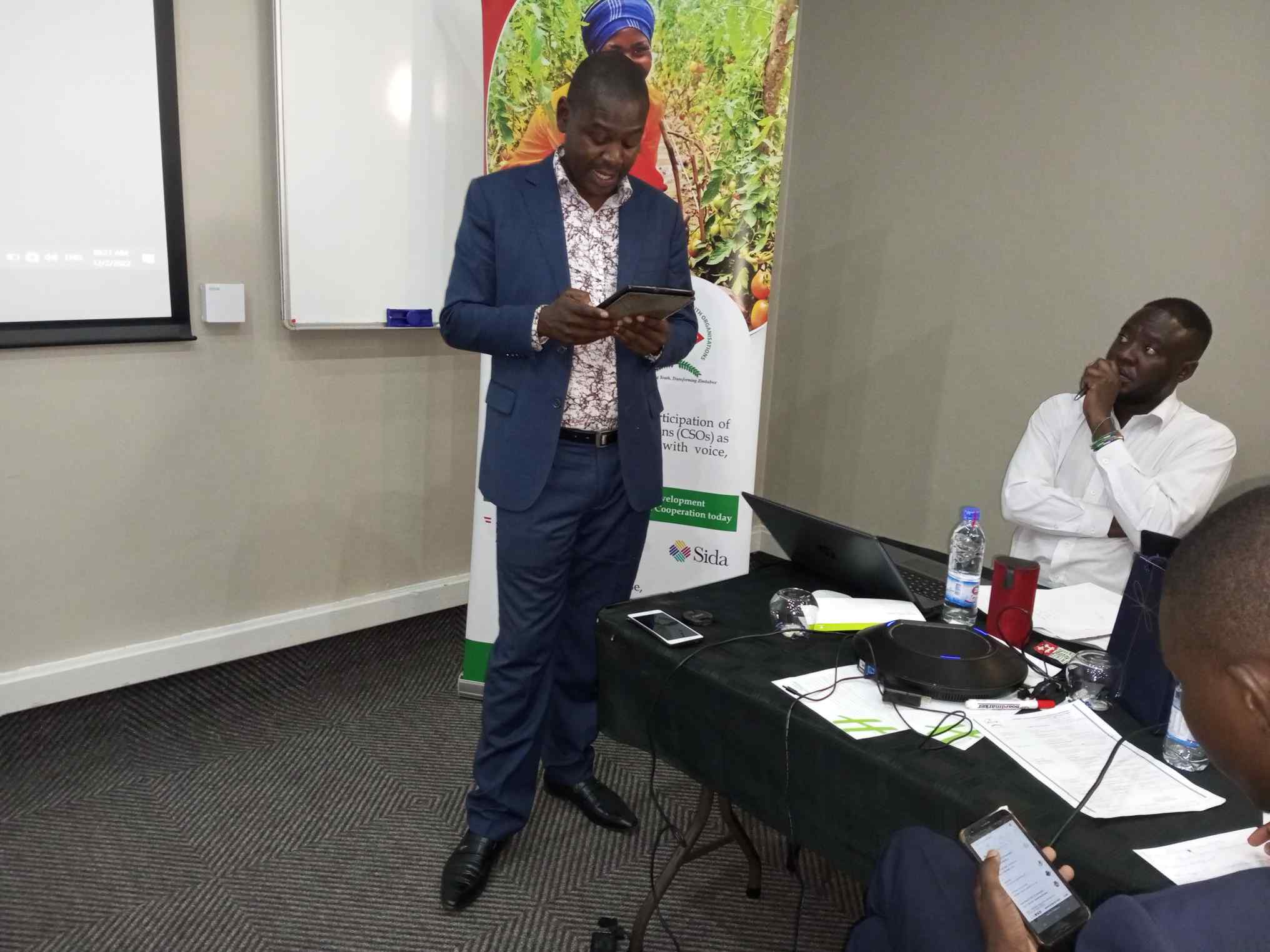|
Getting your Trinity Audio player ready...
|
The National Association of Youth Organisations (NAYO) has said development cooperation connects young people to development financing, including external finance, South-South, and triangular cooperation, climate finance, cooperation among governments, civil society, and the private sector.
This emerged at the NAYO Pre-High Level Meeting (HLM3) National Dialogue Held on the 2nd of December 2022 at Holiday Inn Hotel in Harare.
MacDonald Munyoro, the Coordinator of the National Association of Youth Organisations (NAYO) Zimbabwe said sustainable development depends on the participation of all actors, and recognises the diversity and complementarity of their functions in line with SDG 17.
That view was shared by the Director of Glafad, Taurai Chiraerae, who gave an overview of Zimbabwe’s development trajectory with a focus on youths.
Chiraerae alluded to the 2009 Aid Coordination Policy that provided a framework for planning and effective engagement to ensure all financial aid into the country would be effectively managed and aligned with national priorities
Coordination mechanisms included monthly Donor Coordination Meetings, thematic group meetings in the health sector, a Policy Oversight Committee for the Zim-Fund, and a Policy Committee. These platforms provided platforms for policy dialogue.
However it did not clearly define operational structures and provide guidelines for the mobilization and management of development cooperation,
Implementation of the 2009 Aid Policy was impeded by the re-organization of the ministerial functions, which required a review of the cordination policy to ensure alignment with the new development plans.
Between 2002 and 2012, Zimbabwe received US$5.6 billion in official development assistance (ODA) – 28th largest globally, and net ODA of an estimated US$757.8 million in 2014, which is equivalent to 5.4% of Gross National Product. USAID has provided more than $3.2 billion in development assistance to Zimbabwe since its independence in 1980.
In 2019, the country received US$974.89million (World Bank) an increase from the 2018 figures of US$794. In 2021, the country received US$961 million in special drawing rights (SDR) from the IMF providing a unique opportunity to fight covid 19 and work towards achievement of the SDGs. In 2019 top donors for Zimbabwe included UK, Japan, USA, EU institutions and Germany (AidforTrade) UK 53%, EU institutions 19% and Sweden 15% Global Partnership for Effective Development Cooperation (GPEDC) monitoring of development assistance.
Dr. Munashe Matambo said trust among development actors is at the heart of today’s development agenda.
“Paradoxically, trust is increasingly in short supply among development actors. This decline threatens the capacity of development actors to tackle some of today’s development challenges. For example, in the Zimbabwean context, for two decades, government has advanced the argument that a number of civil society organisations and donor agencies are agents of regime change and imperialism.
“Thus, government has responded by tabling the Private Voluntary Organisations (PVO) Amendment bill before Parliament. Clause 5 makes it an offence for a for a PVO to be involved in supporting or opposing a political party or candidate,” Dr. Matambo said.
Hon Ability Gandawa, Hurungwe North legislator who is a member of the parliamentary portfolio committee on youth said the 2030 Agenda for Sustainable Development (“the 2030 Agenda”) and its 17 Sustainable Development Goals (SDGs) aim to ensure the fundamental rights of all people to a decent life, peace, and a healthy environment, including by eradicating poverty in all its forms and in securing the sustainability of the plane
To that end, he said Parliaments and parliamentarians are valuable partners in ensuring the accountable, inclusive, participatory, and transparent governance that is necessary to achieve sustainable development for all.
“Parliaments in both developed and developing countries have a crucial legislative, budgetary and oversight role to play in the overall implementation of the 2030 Agenda. Within this context, their role in development cooperation is crucial to ensuring that governments are accountable for the decisions that they make about how resources – including aid – are spent.
“The national development cooperation landscape is evolving and diversifying rapidly, with many countries experiencing a shift in flows as domestic public and private resources increase, and the sources of external resources diversify. As such, development planning and implementation will also need to evolve from a whole-of government to a whole-of-society approach, bringing in new and emerging partners with diverse comparative advantages to ensure maximum development impact,” Hon Gandawa said.
In enacting legislation and overseeing budgets, parliaments have an important role to play in ensuring Officail Develomant Aid and other development resources are allocated and spent in ways that respond to the priorities of people and societies. However, the fact that development cooperation is increasingly channelled from and to actors outside of the public sector and through an increasing number of modalities and instruments poses a challenge to parliamentarians in effectively exercising this role.
What can parliaments and members of parliament do?
- Advocate for a dramatic scaling up of development cooperation to strengthen parliament’s capacities to engage in national development planning processes by ensuring that parliaments are well equipped with the knowledge, analysis, and resources to review these processes and speak on behalf of people and societies, particularly the poor and other marginalized groups.
- Proactively assess their own capacity to engage in development planning processes in consultation with representatives of partner country governments. This may involve exploring the establishment of specific parliamentary secretariats on issues related to development and/or development cooperation. Key questions to consider in such self assessments are: whether there is an enabling legal environment that supports the role of parliaments in development and development cooperation; whether adequate financial and human resources, such as research and support staff, are available to support parliamentarians to undertake quality data and policy analysis; and whether parliaments have sufficient space to review and debate development strategies and plans.
- Foster peer-learning among MPs through study groups on relevant topics and/or collaborate with other development stakeholders to increase awareness of issues and familiarize themselves with policy and programme options, alternatives, and potential impacts






